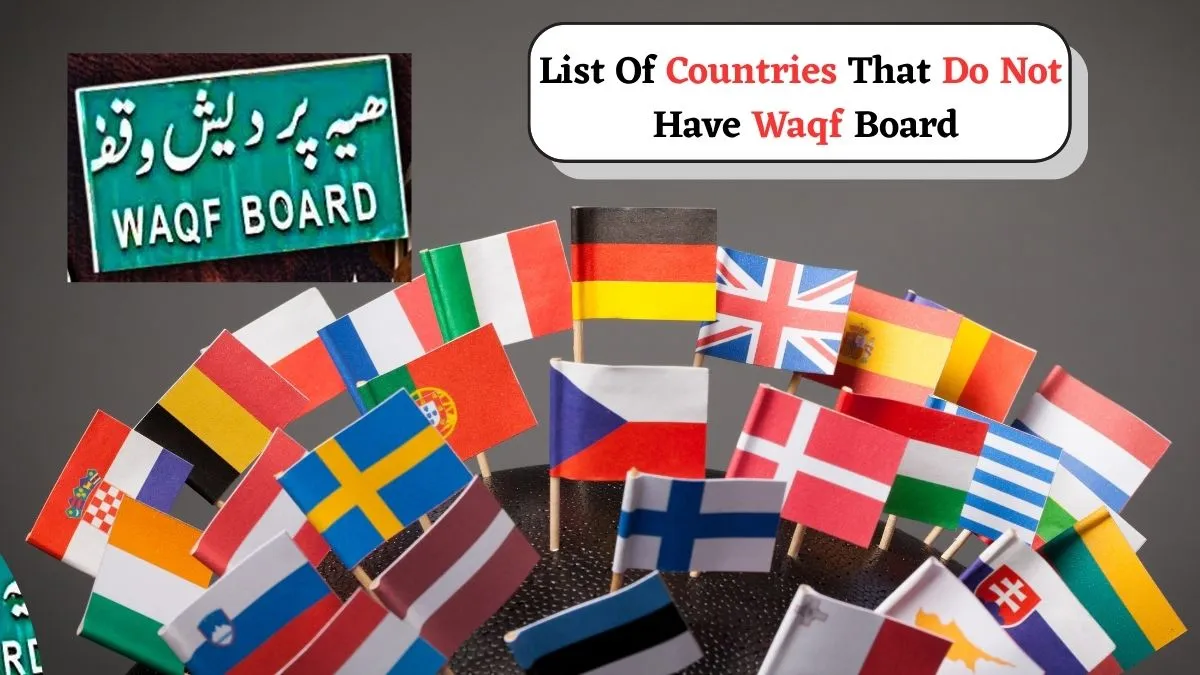- By Aditi Priya Singh
- Mon, 14 Apr 2025 04:07 PM (IST)
- Source:JND
List of Countries Which Do Not Have a Waqf Board: A Waqf Board is a legal entity that oversees waqf properties, which are assets or land given by people for Islamic religious, philanthropic, or communal reasons. These properties are intended to support graveyards, schools, mosques and the underprivileged. Instead of a separate waqf board, government ministries or religious departments oversee waqf properties directly in many Muslim-majority nations. But the system is different in India.
How many waqf properties does India have?
India has one of the largest Waqf Boards in the world, as it's each state has its own Waqf Board in addition to a central Waqf Council. Over 8 lakh waqf properties are under the management of these boards nationwide. The Waqf Act of 1995, as amended in 2013, governs the waqf system in India. This law guarantees that waqf properties are not abused or occupied unlawfully, but are instead used appropriately. These assets must be maintained, disputes must be settled, and the money must be used for welfare initiatives like community support, healthcare and education.
List Of Countries That Do Not Have A Waqf Board
Waqf boards are absent from nations like Turkey, Egypt, Jordan, and Iraq, in contrast to India. Rather, their governments use religious ministries or councils to oversee waqf properties. The distinctive feature of India's waqf policy is that it grants distinct boards the legal authority to manage Islamic charitable assets within a defined framework.
1. Turkey
Turkey does not have a Waqf Board like India. Rather, the government agency known as the Directorate General of Foundations (Vakıflar Genel Müdürlüğü) is in charge of overseeing waqf properties. To guarantee openness and appropriate use, the government assumed control of waqf administration following the collapse of the Ottoman Empire.
2. Libya
The General Authority of Awqaf and Islamic Affairs is in charge of waqf matters in Libya. A distinct waqf board does not exist. Religious endowments are supervised by the government to guard against abuse and to administer them under Islamic law.
3. Egypt
The Ministry of Awqaf is in charge of Egypt's waqf properties. Since the government maintains regulation and central control over mosques and waqf assets, there is no waqf board.
4. Sudan
Sudan also does not have a separate waqf board. The management of waqf is under the control of the Ministry of Guidance and Religious Endowments, which ensures that religious properties are used for their intended purposes.
5. Lebanon
Waqf properties in Lebanon are managed by various religious communities. The national waqf board does not exist. Depending on the sect, local religious leaders or councils typically supervise Islamic waqfs.
6. Syria
The Ministry of Awqaf oversees the management of Syria's waqf properties. The nation lacks a separate waqf board. Through the central authority, the ministry manages all Islamic affairs and religious endowments.
7. Jordan
There is no waqf board in Jordan. Rather, the Ministry of Awqaf Islamic Affairs and Holy Places is in charge of waqf affairs. This ministry is in charge of endowments, mosques and religious schools.
8. Tunisia
The Ministry of Religious Affairs is in charge of managing waqf properties in Tunisia. In the past, the government dismantled waqf institutions to consolidate authority and prevent abuses based on religion or politics.
9. Iraq
Iraq has two main offices, the Sunni Endowment Office and the Shia Endowment Office, but no waqf board. They take care of waqf properties for their communities and are run by the government, negating the need for a separate waqf board.
